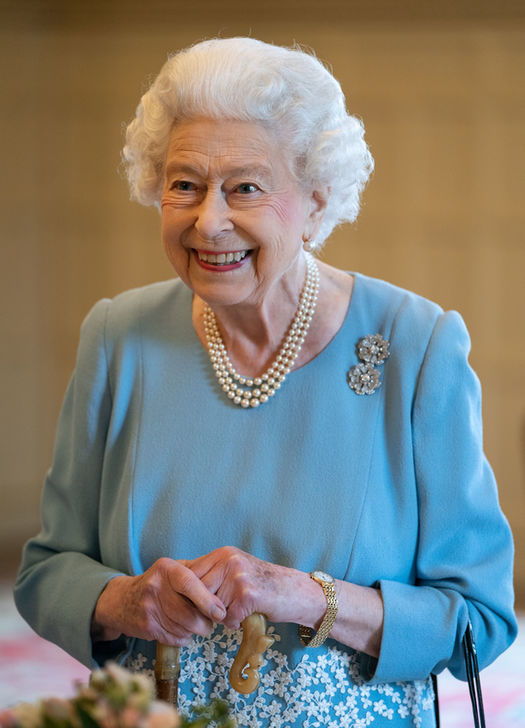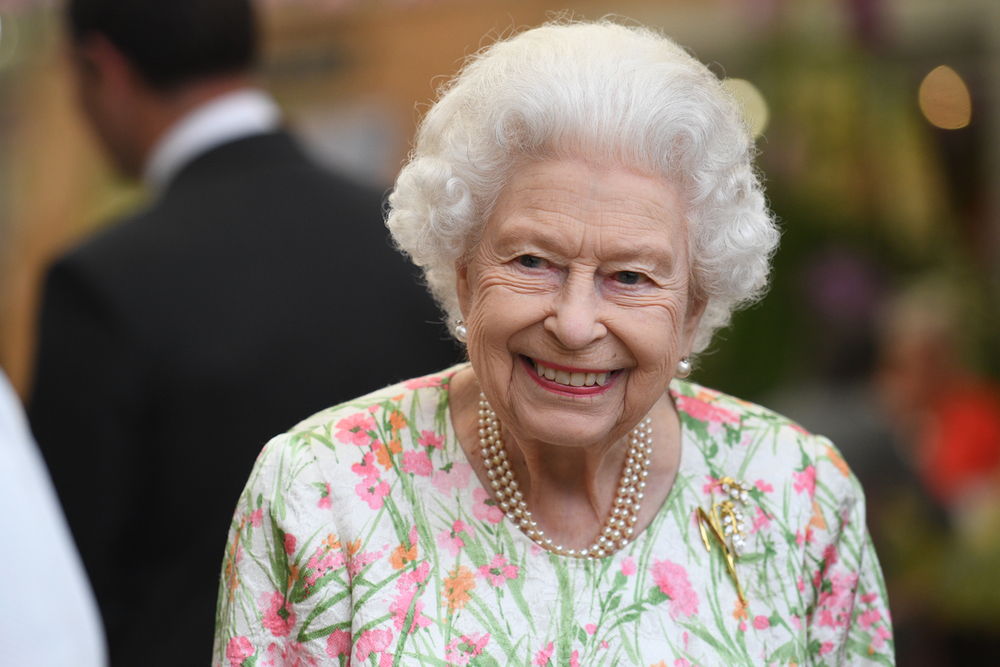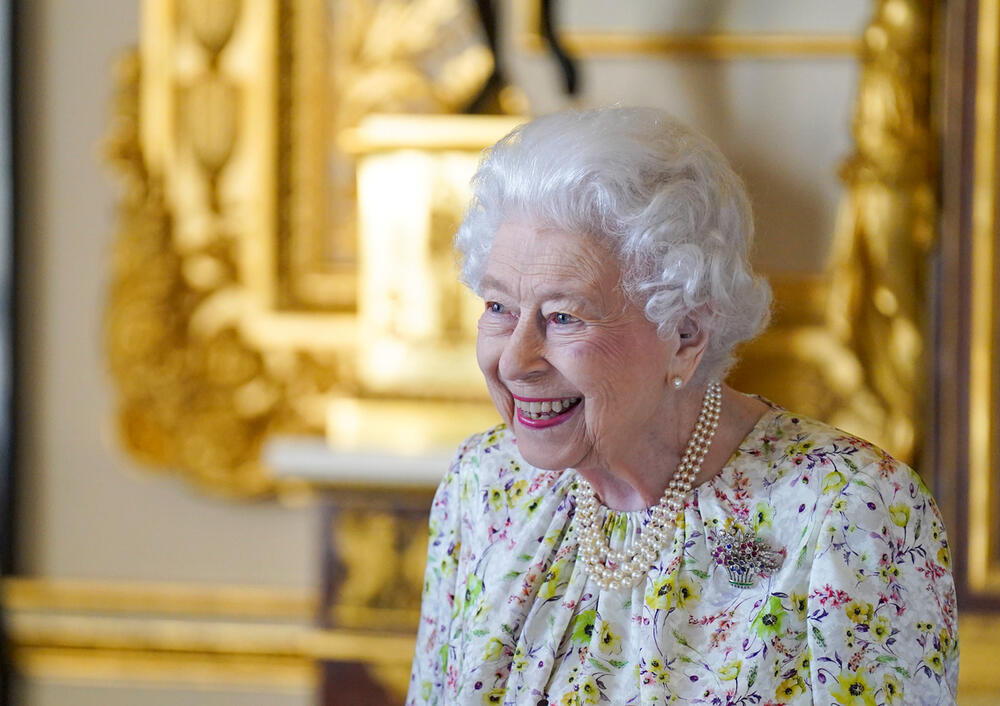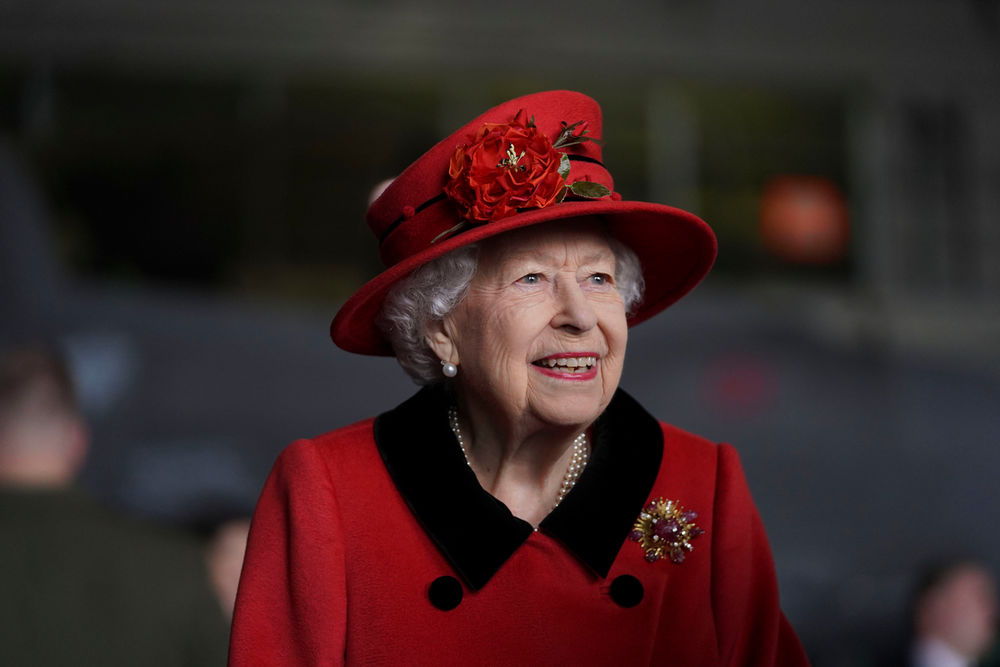Queen Elizabeth II
8 September 2022

Since 1952, Queen Elizabeth II served as the reigning monarch of the United Kingdom (England, Wales, Scotland, and Northern Ireland) and numerous other realms and territories, as well as head of the Commonwealth, the group of 54 sovereign nations that includes many former British territories. Extremely popular for nearly all of her long reign, the Queen was known for taking a serious interest in government and political affairs. Admired for her sense of duty and her devotion to a life of service, she was an important figurehead for the UK and the Commonwealth during times of enormous social change.
Elizabeth Alexandra Mary Windsor (known as "Lilibet" within the family) was born in Mayfair, London, as the first child of the Duke and Duchess of York (later King George VI and Queen Elizabeth). Her father ascended the throne in 1936 upon the abdication of his brother, King Edward VIII, making Elizabeth the heir presumptive.
Though she spent much of her childhood with nannies, Princess Elizabeth was influenced greatly by her mother, who instilled in her a devout Christian faith as well as a keen understanding of the demands of royal life.
Educated by private tutors, with an emphasis on British history and law, the princess also studied music and learned to speak fluent French. She trained as a Girl Guide, with the 1st Buckingham Palace Company forming specifically so that she could socialise with girls of similar age and developed a lifelong passion for horses. As queen, she kept many thoroughbred racehorses and frequently attended racing and breeding events. Elizabeth’s famous attachment to Pembroke Welsh corgis also began in childhood, and she would own more than 30 corgis throughout her reign.
.jpg)
Elizabeth and her only sibling, sister Margaret, spent much of World War II living separately from their parents in the Royal Lodge at Windsor Castle. Between 1941 and 1944, the princesses staged and performed in a series of Christmas pantomimes to raise money for the Royal Household Wool Fund, which bought wool to knit into military garments for soldiers.
As Elizabeth approached her 18th birthday, parliament changed the law so that she could act as one of five Counsellors of State in the event of her father's absence abroad or incapacity. She trained as a driver and mechanic with the Auxiliary Territorial Service and was given the rank of honorary junior commander.
At the end of the war in Europe, on VE Day, Elizabeth and Margaret mingled anonymously with the celebratory crowds in the streets of London. The Queen later said in a rare interview, "We asked my parents if we could go out and see for ourselves. I remember we were terrified of being recognised... I remember lines of unknown people linking arms and walking down Whitehall, all of us just swept along on a tide of happiness and relief."
.jpg)
In 1947, Elizabeth joined her parents on a tour of South Africa and Zimbabwe (formerly Rhodesia), her first overseas tour, during which she pledged in a broadcast to the British Commonwealth on her 21st birthday: "I declare before you all that my whole life, whether it be long or short, shall be devoted to your service and the service of our great imperial family to which we all belong."
Soon after the family returned from Africa, they announced Elizabeth’s engagement to Prince Philip of Greece, her third cousin (both were great-great-grandchildren of Queen Victoria and Prince Albert), and a lieutenant in the Royal Navy. She had met him when she was only 13, and their relationship developed through visits and exchanging letters during the war.
There was some controversy surrounding the engagement; Philip had no financial standing, was foreign-born (though a British subject who had served in the Royal Navy), and had sisters married to German noblemen with Nazi links. Though many in the royal circle viewed Philip as an unsuitable match, Elizabeth was determined and very much in love. Philip renounced his Greek and Danish titles, officially converted from Greek Orthodoxy to Anglicanism, and took the name of his mother's British family - Mountbatten. Britain was still recovering post-war and Elizabeth was required to use ration coupons to purchase the fabric for her wedding gown.
Elizabeth and Philip were married on November 20, 1947, at Westminster Abbey, and their marriage would last for an extraordinary 73 years until his death at age 99 in June, 2021.
Elizabeth gave birth to her first child, Charles, in 1948, followed by Anne in 1950. Her children were all permitted the titles of a royal prince and princess by order of the King. Another son, Andrew, arrived in 1960 followed by Edward in 1964.
.jpg)
In early 1952, Elizabeth and Philip set out for a tour of Australia and New Zealand by way of Kenya. On 6 February 1952, they had just returned to their Kenyan home after an evening out when the news arrived that the King, who had been in poor health for some time, had died, meaning Elizabeth's immediate accession to the throne. Philip broke the news to the new queen.
When asked to choose her reginal name, the young monarch chose to remain Elizabeth. She became the sixth woman in history to ascend to the British throne. Her formal coronation as Queen Elizabeth II took place on June 2, 1953, in Westminster Abbey.
Later in 1953, the Queen and her husband embarked on a seven-month round-the-world tour, visiting 13 countries and covering more than 40,000 miles (64,000 kilometres) by land, sea, and air. She became the first reigning monarch of Australia and New Zealand to visit those countries, and the crowds that greeted the touring royals were immense. The Queen was the most widely travelled head of state, having made hundreds of state visits to other countries and tours of the Commonwealth.
In the first decade of her reign, Elizabeth settled into her role as queen, developing a close bond with Prime Minister Winston Churchill (the first of 13 prime ministers she would work with during her reign), and weathering a foreign affairs disaster in the Suez Crisis of 1956.
.jpg)
The Queen experienced numerous milestones and challenges in the following decades.
In 1965, her sister, Princess Margaret, embarked on a controversial and expensive publicly funded tour of the US. The 1966 Aberfan disaster, where the Welsh town was engulfed in a landslide of coal waste, killing 144 people; mostly children, saw the Queen face criticism for her late response, attending eight days after the event. In 1969, in an attempt to humanise the royal family and introduce the public to the Queen's 21-year-old son, Charles, the family participated in an unscripted documentary offering a glimpse inside royal life. Over 30 million people tuned in for the premiere across England.
.jpg)
In 1972, over a quarter of a million British coal miners went on strike. A state of emergency was declared, and energy consumption was restricted. At its height, citizens of London went up to nine hours a day every other day without electricity. In 1976, another controversy involving Princess Margaret as tabloid photos emerged of her swimming off the coast of the private island of Mustique with a man 17 years her junior, bringing about the end of her marriage to the Earl of Snowdon. The ensuing negative press coverage coincided with the Silver Jubilee in 1977, but the Queen's popularity seemed to be re-affirmed in the celebrations.
.jpg)
In 1981, six weeks before her son Charles was to marry Lady Diana Spencer, the Queen had six blank shots fired at her from close range whilst riding her horse down the Mall. Later that year during a tour of New Zealand, the Queen was the subject of another attack when a shot was fired from a building overlooking her parade, thankfully missing her. In 1982, the Queen awoke in her bedroom at Buckingham Palace to find an intruder in the room with her. In a serious lapse of security, assistance only arrived after two calls to the Palace police switchboard.
The new royal, Charles' wife, Princess Diana, was enthusiastically received by the public and was celebrated in the media for her unconventional approach to charity work. Her activism and glamour made her an international icon and earned her enduring popularity as well as unprecedented public scrutiny.
Intense media interest in the opinions and private lives of all the royal family led to a series of sensational stories in the press, not all of which were true. The British media focused on the relationship between the Queen and Prime minister Margaret Thatcher. In 1986, the Sunday Times reported that the Queen had concerns about Thatcher, citing high unemployment, social division, a series of riots and strikes and Thatcher's refusal to apply sanctions against the apartheid regime in South Africa. As soon as the story was published, Buckingham Palace issued a statement: “As with all previous prime ministers, the queen enjoys a relationship of the closest confidentiality with Mrs. Thatcher and reports purporting to be the queen’s opinions of government policies are entirely without foundation.″ Despite the persistent reports of acrimony between them, Thatcher later conveyed her personal admiration for the Queen, and the Queen bestowed two honours in her personal gift- membership in the Order of Merit and the Order of the Garter- to Thatcher after she was replaced as Prime Minister in November 1990.
.jpg)
The following decade proved the most testing for the Queen, with public opinion of the monarchy dropping to and an all-time low. In December 1992, she was saddened by the official separation of Prince Charles and Princess Diana. The troubled couple had little in common, both had other love interests, and Diana, despite being a global celebrity, was an outsider in the Royal Family.
In November 1992, to mark her Royal Jubilee, the Queen called 1992 her annus horribilis (horrible year). Republican feeling in Britain had risen due to press estimates of the Queen's private wealth – which were contradicted by the Palace – and reports of affairs and strained marriages among her extended family. In March, her second son, Prince Andrew, and his wife, Sarah, separated; in April, her daughter, Princess Anne, divorced Captain Mark Phillips, during a state visit to Germany in October, angry demonstrators in Dresden threw eggs at her; and, in November, a fire destroyed a section of Windsor Castle, one of her official residences. The monarchy came under increased criticism and public scrutiny. Support for republicanism in Britain seemed higher than at any time in living memory, however, republicanism was still a minority viewpoint and the Queen herself retained high approval ratings. Criticism was focused on the institution of the monarchy itself and the Queen's wider family rather than the monarch’s behaviour or actions. Still, under the pressure of public opinion, the Queen began to pay income tax for the first time in 1993.
In August 1996, Charles and Diana divorced. A year later, in August 1997, Diana died in a car crash in Paris with her lover, Dodi Fayed, as they attempted to escape pursuing paparazzi.
Amid widespread public mourning, the Queen is said to have misjudged the public mood and suffered public criticism when, for perhaps one of the only times in her long reign, she prioritised family over duty and elected to stay at Balmoral to support her young grandsons, William and Harry, who had just lost their mother.
Pressured by the hostile reaction, the Queen agreed to return to London and do a live television broadcast on 5th September, the day before Diana's funeral. In the broadcast, she expressed admiration for Diana and her feelings "as a grandmother" for the two princes. As a result, much of the public hostility evaporated.
In November 1997, the Queen and her husband held a reception to mark their golden wedding anniversary, during which she made a speech and praised Philip for his role as a consort, referring to him as "my strength and stay".
.jpg)
The Queen began the year 2000 with her 13th visit to Australia, but the health of both her mother and her sister remained a concern to her. The Queen Mother would celebrate her 100th birthday that August and the occasion was marked by a grand ball. Included in the celebrations were the 70th birthday of Princess Margaret, the 50th birthday of Princess Anne, and the 40th birthday of Prince Andrew. On the day of her birthday, the Queen Mother rode with the Prince of Wales in carriage up the Mall to Buckingham Palace. That summer the planning for the Queen’s Golden Jubilee two years later also began. After the September 11 attacks, Elizabeth joined a congregation of 2,700, mostly Americans, at St. Paul’s Cathedral for a memorial service and she sang the words to the National Anthem.
In February and March 2002 the Queen suffered the loss of her sister and mother respectively. 2002 also saw the Queen mark her Golden Jubilee. There were street parties and commemorative events, and monuments were named to honour the occasion. A million people attended each day of the three-day main Jubilee celebration in London, and the enthusiasm shown by the public for the Queen was greater than predicted by the media.
In April 2005, her son, Charles, finally married Camilla Parker Bowles – his long-time love. The Church of England had recently relaxed its rules allowing for divorcees to remarry. The Queen, also the Supreme Governor of the Church of England, decided it was inappropriate to attend the civil service, however she and Prince Philip did attend the accompanying “Service of Prayer and Dedication”.
Three months later, when 52 people were killed in a terror attack in London, the Queen stated: “I want to express my admiration for the people of our capital city, who in the aftermath of yesterday’s bombings are calmly determined to resume their normal lives. That is the answer to this outrage.”
In November 2007, Elizabeth and Philip celebrated 60 years of marriage, and there was a commemoration in Westminster Abbey. On 21 December 2007, Elizabeth surpassed her great-great-grandmother Queen Victoria to become the longest-living British monarch.
.jpg)
The Queen's 2012 Diamond Jubilee marked 60 years on the throne; celebrations were held throughout her realms, the wider Commonwealth, and beyond. The Queen and her husband undertook an extensive tour of the United Kingdom, while her children and grandchildren embarked on royal tours of other Commonwealth states on her behalf. On 4th June, Jubilee beacons were lit around the world.
While touring Manchester as part of her Jubilee celebrations, the Queen made a surprise appearance at a wedding party at Manchester Town Hall, after the bride and groom wrote to her upon learning of her tour planned for the venue. In November of the same year, the Queen and her husband celebrated their blue sapphire wedding anniversary (65th).
The Queen, who opened the 1976 Summer Olympics in Montreal, also opened the 2012 Summer Olympics and Paralympics in London, making her the first head of state to open two Olympic Games in two countries. For the London Olympics, she played herself in a short film as part of the opening ceremony, alongside actor Daniel Craig as James Bond. In April 2013, she received an honorary BAFTA for her patronage of the film industry and was called "the most memorable Bond girl yet," at the award ceremony.
Due to her advancing age, and her desire to limit travelling, in 2013 the Queen chose not to attend the biennial Commonwealth Heads of Government Meeting for the first time in 40 years. She was represented at the summit in Sri Lanka by Prince Charles. In March 2019, she opted to give up driving on public roads.
In January 2020, the Queen's grandson, Prince Harry, announced to the world that he and his wife, Meghan, would be leaving their roles as senior royals and relocating to the US, claiming the media intrusion into their lives was suffocating. A statement from Buckingham Palace followed: "The Queen has written confirming that in stepping away from the work of the Royal Family it is not possible to continue with the responsibilities and duties that come with a life of public service," indicating that anything less than full commitment to the institution was not enough.
The Queen moved to Windsor Castle on 19th March 2020, a precautionary measure as the Covid-19 pandemic swept through the United Kingdom. Public engagements were cancelled and Windsor Castle followed a strict sanitary protocol nicknamed "HMS Bubble". On 5th April, the Queen addressed the Commonwealth in a televised broadcast, in which she asked people to "take comfort that while we may have more still to endure, better days will return". She added, "we will be with our friends again; we will be with our families again; we will meet again". The broadcast was watched by an estimated 24 million viewers on television in the United Kingdom.
On 8 May, the 75th anniversary of VE Day, the Queen addressed the nation again, at 9 pm, the exact time at which her father George VI broadcast in 1945, in which she asked people to "never give up, never despair". She attended a few public engagements in October and November 2020 but returned to Windsor castle when Covid infection rates started to rise. There, in November, the Queen and Prince Philip celebrated their 73rd wedding anniversary. At Christmas, like millions of Britons, the Queen sacrificed the traditional holiday festivities with her family at Sandringham. Instead, for the first time in 33 years, she remained at Windsor with 99-year-old Prince Philip. She acknowledged what a sad and unusual festive season it would be for many in her annual Christmas speech, assuring those missing out on time with loved ones, and whose only wish was for "a simple hug or a squeeze of the hand," that "you are not alone."
After 73 years of marriage, Prince Philip died on 9th April 2021, making Elizabeth the first British monarch to reign as a widow or widower since Queen Victoria. She remarked in private that his death "left a huge void."
Despite the continuing Covid pandemic, the Queen continued to attend several public engagements. She was hospitalised briefly in October, which the Palace confirmed after The Sun ran the story as a front page. She did not attend the Remembrance Sunday service due to a back sprain, having only missed six other Cenotaph services during her reign due to being either abroad or pregnant. The Queen did not travel to Sandringham for Christmas in 2021, electing to spend the day at Windsor Castle with the Duke and Duchess of Cornwall.
On 6th February 2022, the anniversary of her accession to the throne, the Queen became the first British monarch to celebrate a Platinum Jubilee, marking a 70 year reign. Celebrations and events were held on the day, and concerts, parties, exhibitions and a four-day Bank Holiday weekend were held at the beginning of June, with the Queen attending the Trooping the Colour event, which traditionally marks the birthday of the reigning monarch. After the Jubilee, she stepped back from most public engagements and was represented by senior members of the family in her place.
On the 8th of September 2022, the news began to circulate that the Queen was unwell and members of her family were travelling to be with her at Balmoral. Later that day, the Palace announced that Queen Elizabeth II had died, prompting an outpouring of tributes and grief across the United Kingdom, the Commonwealth, and the world.
The Queen was the patron of more than 600 charities ranging from the Highland Cattle Society to the Soldiers' and Airmen's Scripture Readers Association. She was also a discreet benefactor of a huge range of causes through two charitable trusts which, between them, distribute around £1.5m each year.
Elizabeth The Second, by the Grace of God, of the United Kingdom of Great Britain and Northern Ireland and of her other realms and territories Queen, Head of the Commonwealth, Defender of the Faith - her reign spanned an extraordinary length of time; she was the longest-reigning British monarch, working initially with Winston Churchill, a prime minister who'd received his Army commission from her great-great-grandmother, Queen Victoria, to in more recent years, working with David Cameron, a prime minister who had been at prep school with her youngest son. During her reign, enormous changes took place in technology, science, and society - from the launch of the first space satellite to rovers on Mars, from Civil Rights marches in the US to the end of Apartheid in South Africa, from the Cold War to the end of the Soviet Union, from computers that filled a room to those that fit in our palms - and also the end of the British Empire. The Queen was monarch of 70 overseas territories at the beginning of her reign and 15 at the end.
What was truly remarkable about the Queen was not simply the passage of time, but the fact that she moved with those times while remaining the great constant in British public life. She will be remembered for her unwavering devotion to duty and service. This went far beyond a mere sense of obligation; more of a permanent awareness that whatever she did, wherever she went, Her Majesty was the embodiment of the nation.
Queen Elizabeth II is survived by her four children, Prince Charles, Princess Anne, Prince Andrew, and Prince Edward, eight grandchildren, and 12 great-grandchildren.


.jpg)


